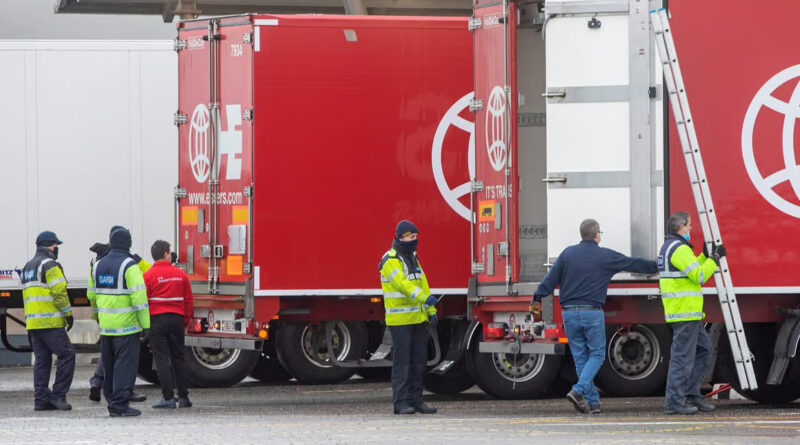Government makes next set of crucial changes to improve biosecurity at UK’s trade border
Today, the government is implementing significant changes to the way the UK imports food, animal, and plant products to enhance our biosecurity.
Products categorized as presenting a ‘medium’ risk to our biosecurity will now undergo identity and physical checks. These checks will test for pests and diseases that could endanger food safety and harm our natural environment. They involve visual inspections and temperature readings of goods.
Furthermore, goods classified as ‘high risk’ will now be inspected at the border, whereas previously they were checked upon reaching their destination.
These measures aim to identify public health issues like salmonella and strengthen existing safeguards against diseases such as African Swine Fever, which poses a threat to our pig farms.
Previously, most goods from the EU entered the UK without checks, except for the highest-risk items like live animals and certain plants. This interim measure was intended to provide businesses with time to adapt to potential changes.
Following consultations with numerous stakeholders from the UK and EU, including business organizations and trade associations, the government is implementing checks to ensure the safety of imported products.
Additionally, the government is launching two pioneering pilots to test whether businesses can conduct checks away from the border and if new technologies combined with business data can offer further benefits to industry, potentially reducing the need for checks while ensuring high biosecurity and food safety standards are maintained.
These changes are part of the Border Target Operating Model, a new framework for global, risk-based border controls. The first set of changes was successfully implemented in January, with positive uptake from industry.
The Border Target Operating Model aims to minimize costs for traders and consumers. Government analysis estimates that traders will save around £520m annually under the new model compared to original Brexit proposals, while the impact on food prices for consumers is expected to be minimal.
The cost of implementing the model is negligible compared to the potential economic impact of major outbreaks of plant or animal diseases.
Baroness Neville-Rolfe, Minister of State at the Cabinet Office, emphasized the importance of these checks in improving the UK’s biosecurity and supporting industry through the transition.
Biosecurity Minister Lord Douglas-Miller highlighted the role of these border checks in protecting against plant and animal diseases and maintaining the UK’s status as a reliable trading partner.
Professor Christine Middlemiss, UK Chief Veterinary Officer, stressed the importance of a risk-based approach and the use of technology to bolster biosecurity while facilitating international trade.
Marco Forgione, Director General of the Institute of Export & International Trade, emphasized the aim of the Border Target Operating Model to create a world-leading, digital-first border system and highlighted the importance of engagement with businesses to maximize its benefits for consumers and the economy.




